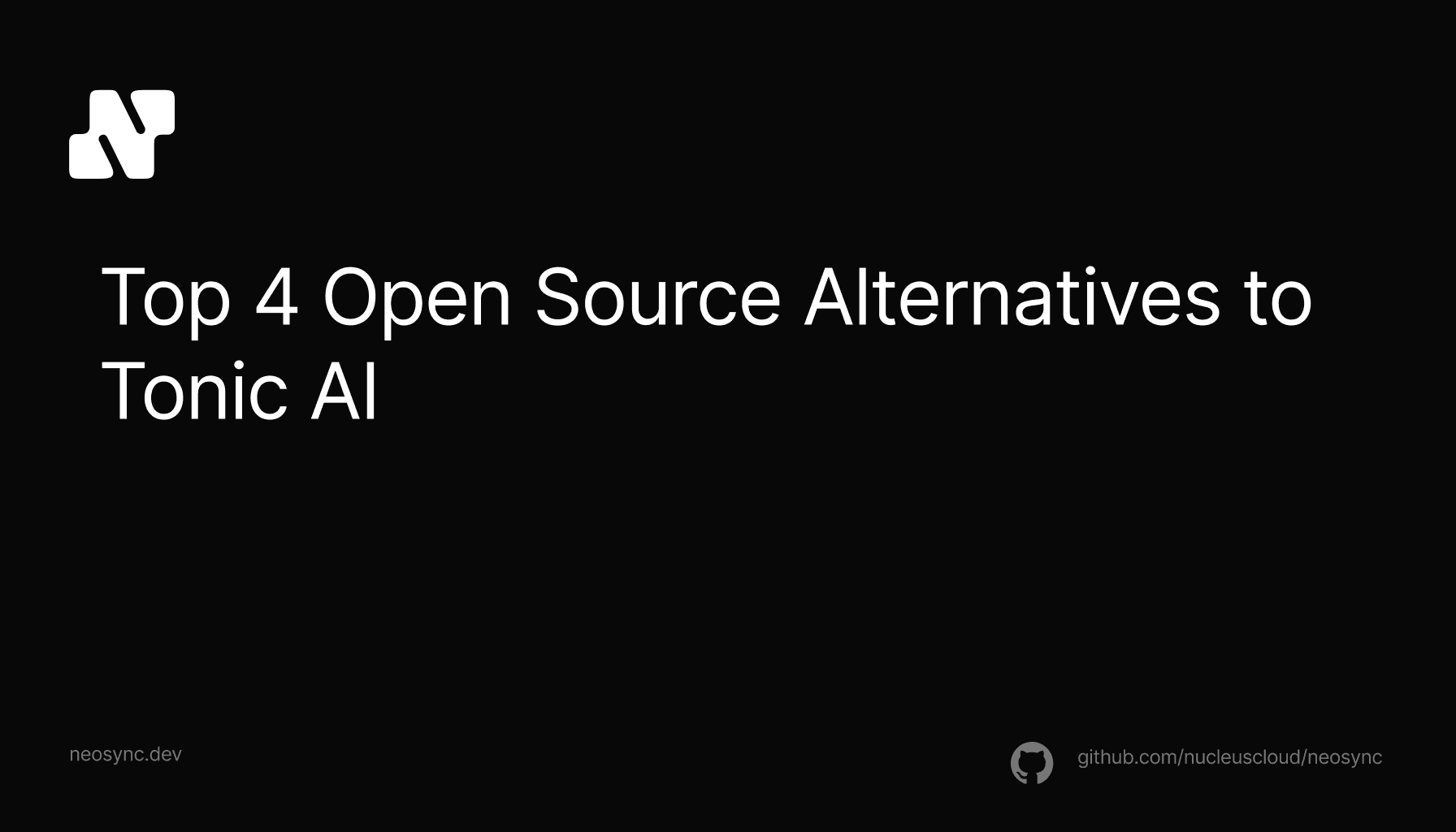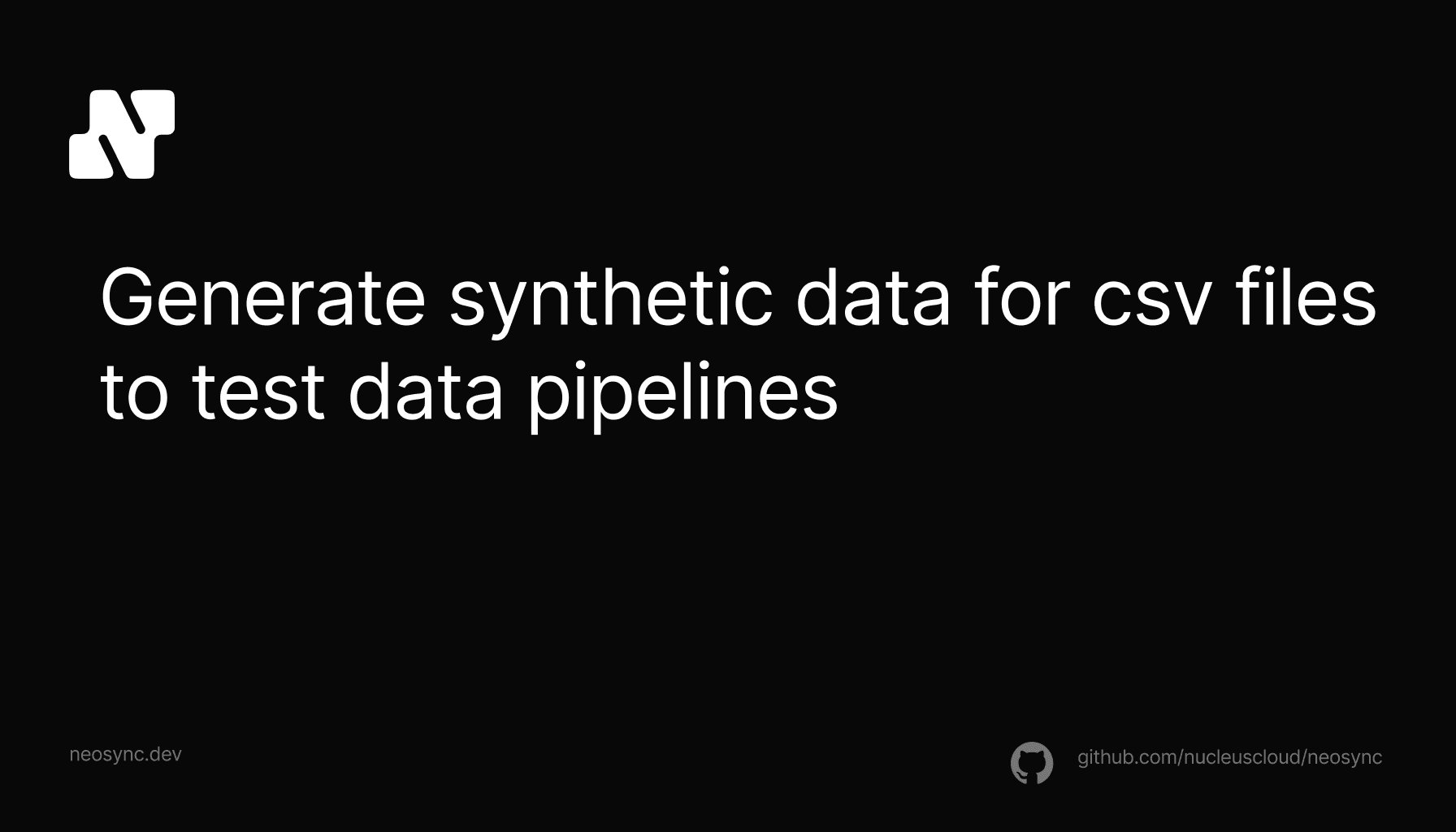
Top Open Source Alternatives to Tonic AI for Data Anonymization and Synthetic Data
Top Open Source Alternatives to Tonic AI for Data Anonymization and Synthetic Data
March 31st, 2025

As more companies deal with sensitive data, finding the right tools to anonymize that data or generate synthetic data for testing environments has become crucial. While Tonic AI has been a popular choice in this space, there are several compelling alternatives worth considering, each with its own strengths and focus areas. In this blog, I'll walk through four top Tonic AI alternatives and compare their capabilities from both functional and technical perspectives.
Neosync is an open-source data anonymization and synthetic data platform that's been gaining significant traction, especially among engineering teams looking for flexibility and developer-friendly tooling.
Pros:
Cons:
From a technical perspective, Neosync is built using Go for the backend services with a React/TypeScript frontend. It uses Temporal for workflow orchestration, which gives it reliable execution and fault tolerance. The platform's architecture allows it to handle complex database schemas while maintaining referential integrity.
Delphix has been in the data space for quite a while, originally focused on database virtualization, but has expanded significantly into data masking and synthetic data generation.
Pros:
Cons:
Technically, Delphix offers a robust platform with a focus on stability and scalability. It excels in database virtualization technology, allowing you to create virtual copies of databases without duplicating all the data. This approach can significantly reduce storage requirements and speed up the provisioning of test environments.
K2 View focuses on creating synthetic data for testing and development, particularly for complex enterprise environments.
Pros:
Cons:
From a technical standpoint, K2 View uses a data fabric approach that abstracts various data sources into a unified logical view. This architecture makes it particularly well-suited for organizations with complex, heterogeneous data environments. The platform is designed to handle large-scale enterprise deployments with multiple data sources and complex relationships.
Gretel AI stands out for its focus on AI-powered synthetic data generation and anonymization capabilities. Their platform is particularly strong for machine learning and analytics use cases.
Pros:
Cons:
Technically, Gretel AI leverages advanced machine learning models such as GANs (Generative Adversarial Networks) and transformer-based models to generate high-quality synthetic data. Their architecture is cloud-native and API-driven, making it accessible for integration into various workflows. The platform is particularly strong at generating synthetic data that preserves the statistical properties of the original dataset, which is crucial for maintaining analytical validity.
Here's a quick comparison of the key features across these platforms:
| Feature | Neosync | Delphix | K2 View | Gretel AI |
|---|---|---|---|---|
| Open Source | Yes | No | No | No |
| Referential Integrity | Strong | Strong | Strong | Limited |
| AI/ML Integration | Emerging | Limited | Limited | Extensive |
| Developer Experience | Excellent | Moderate | Moderate | Good |
| Enterprise Features | Growing | Extensive | Extensive | Moderate |
| Cost | Low | High | High | Medium |
| Deployment Options | Self-hosted/Cloud | Self-hosted/Cloud | Self-hosted | Cloud |
| Technical Architecture | Go, React, Temporal | Proprietary | Proprietary | Cloud-native, ML-based |
In my experience, the trend is increasingly moving toward more developer-friendly, flexible solutions like Neosync that can integrate well with modern DevOps workflows. The open-source approach also allows for greater community involvement and customization, which is particularly valuable in this space where requirements can vary significantly between organizations.
As with any tool selection, I recommend running a proof of concept with your specific data and use cases to ensure the solution meets your requirements before making a final decision.

Top Open Source Alternatives to Tonic AI for Data Anonymization and Synthetic Data
March 31st, 2025

Using Neosync to generate csv files with synthetic data for testing your data pipelines is easy. Here's how.
March 3rd, 2025

Nucleus Cloud Corp. 2025